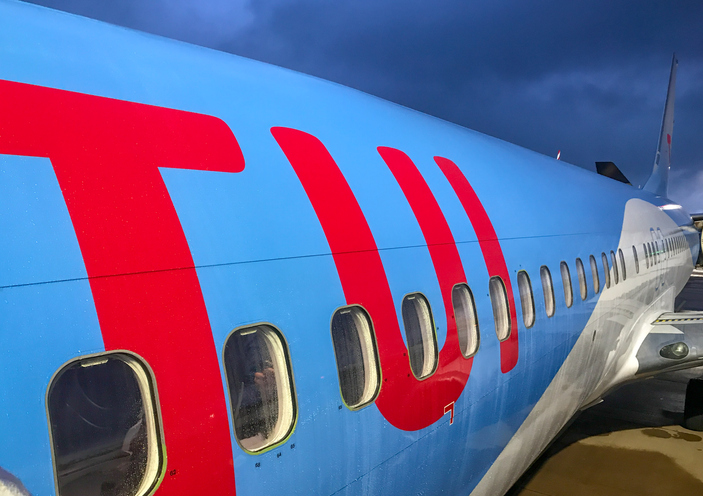ii view: TUI confident about 2023 profit but still high risk
20th February 2023 16:16
by Keith Bowman from interactive investor
Having fallen by over 40% in 20222, shares in this FTSE 250 holiday company are up 30% in 2023. We assess prospects.

First-quarter results to 31 December
- Revenue of €3.8 billion, up from €2.4 billion a year ago
- Underlying loss of €153 million, improved from a loss of €274 million in Q1 2022
- Net debt little changed at €5.3 billion
Guidance:
- Reiterated expectation to increase underlying or adjusted profit significantly over 2023
ii round-up:
TUI AG (LSE:TUI) is a German headquartered integrated holiday company.
Its operations include more than 400 hotels, over 130 aircraft, 16 cruise ships and more than 1,000 travel agencies. Its brands include RIU hotels and resorts and Marella and Hapag-Lloyd cruises.
For a round-up of these latest results announced on 14 February, please click here.
- Invest with ii: Open an ISA | Top ETFs | Transfer an ISA to ii
ii view:
In 2007, German tour operator TUI AG merged with First Choice Holidays of the UK. Today, the FTSE 250 company provides holidays to around 180 worldwide destinations. Its owned hotels offer more than 200,000 beds in around 30 different countries, while its airline fleet rivals the likes of Wizz Air Holdings (LSE:WIZZ), Ryanair and even International Consolidated Airlines Group SA (LSE:IAG). Its sustainability policy is committed to achieving net-zero emissions across its operations and supply chain by 2050 at the latest.
For investors, a recovery in bookings and revenues from the pandemic affected quarter a year ago is clear to see. Rising costs are being countered with rising prices, TUI’s integrated business model gives it more control than the relatively new easyJet Holidays business, while the German government provided financial assistance during the depths of the Covid crisis.
- 10 shares to diversify your ISA portfolio
- 2023 Investment Outlook: stock tips, forecasts, predictions and tax changes
- Six speculative UK share ideas for 2023
Less favourably, consumers continue to face rising interest rates and a cost-of-living crisis. Geopolitical tensions raised by the war in Ukraine could still spread, net debt of $5.3 billion, or £4.7 billion compares with a stock market value of £3.2 billion, while the need to strengthen its finances following the pandemic means the dividend remains suspended.
On balance, and while the share price has improved, the many factors outside of management’s control which can impact the business leave the stock of interest mainly to higher risk investors.
Positives:
- Diversified asset portfolio
- A lower cost base following the pandemic
Negatives:
- Highly uncertain economic outlook
- Dividend payment halted
The average rating of stock market analysts:
Sell
These articles are provided for information purposes only. Occasionally, an opinion about whether to buy or sell a specific investment may be provided by third parties. The content is not intended to be a personal recommendation to buy or sell any financial instrument or product, or to adopt any investment strategy as it is not provided based on an assessment of your investing knowledge and experience, your financial situation or your investment objectives. The value of your investments, and the income derived from them, may go down as well as up. You may not get back all the money that you invest. The investments referred to in this article may not be suitable for all investors, and if in doubt, an investor should seek advice from a qualified investment adviser.
Full performance can be found on the company or index summary page on the interactive investor website. Simply click on the company's or index name highlighted in the article.